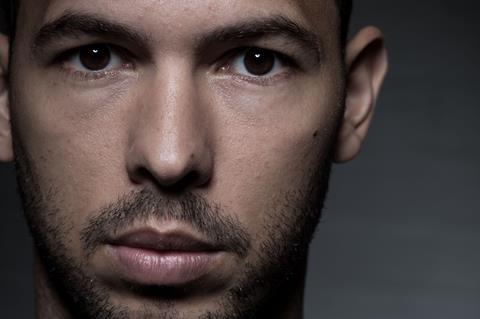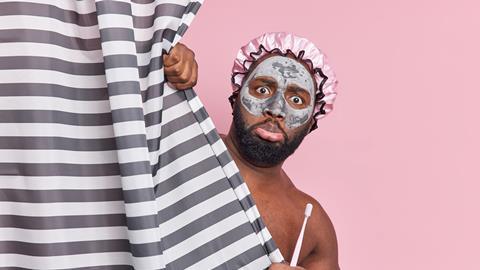Hope Bonarcher lifts the lid on toxic masculinity, but also culture’s antidote – a gentler manhood that she is concerned is based on the ‘supremacy’ of womanhood
Toxic masculinity. Apparently, it’s everywhere. Most likely you’re a female if you’re reading this, but you’re married to, dating, raising, sister to, working beside, schooling with or in some other way, shape or form, living among the opposite sex. I can 100 per cent guarantee it, because that’s the way God created the world and neither male nor female would exist without the other in it.
A recent study by the Family Education Trust revealed that three out of ten schools in the UK now discuss the topic of toxic masculinity. They example the popularity among boys of cultural commentators like Andrew Tate; self-professed multimillionaire pimp and social media phenomenon, and his corrupting effect on the impressionable. My children came home recently and told me that a neighbourhood boy, aged about seven or eight, boasted that his older brother has a poster of Tate in his bedroom. With over 10 million followers on X, it’s safe to say, Tate’s cultural impact is notable.
If he is the poster-child for toxic masculinity, the dark side of the gruffer sex grows sadly more sinister. There was the widely publicised story out of France of a 74-year-old handicapped man accused of repeatedly drugging his wife and arranging for her rape by strangers. Nurse, fireman, prison guard are just a few examples of the upwards of 70 men invited to sexually assault her, all recorded, by the one who vowed her honour and protection. As a wife, I’m not sure I can think of a worse betrayal. The music industry, on the heels of Hollywood’s Harvey Weinstein shame, is reeling from the allegations surrounding American rapper Sean Combs’ underworld of sex parties and trafficking. In support of the toxic masculinity argument there’s no shortage of examples.

Is culture’s alternative really better?
Macho’s a no-no; a kinder, gentler manhood is de rigueur. Case in point: one of the year’s most anticipated features, A Quiet Place: Day One, featuring Lupita Nyong’o as the terminally ill heroine. She fends off bone-chillingly monstrous-looking earth invaders. The hook is, they’re blind aliens who can only detect their victims (all of humanity), by sound. The film’s dialogue, like Part 1 and Part 2 before it, is eerily quiet, as fearful onlookers learn to make noise at their own peril. The film’s leading man is played by actor, Joseph Quinn. No Bruce Willis or Dwayne ‘The Rock’ Johnson, handsome yet disarmingly vulnerable, he battles a crippling fear of deep water even more threatening than the ghoulish extra-terrestrials. At the climax, he dons his leading lady’s fuzzy, pink cardigan, risking his life against the face of evil to protect, not his love interest, nor any small, vulnerable children, but her prized possession, a pet kitty.
I’ve been pondering masculinity’s soft rebranding, and have decided I’m not a fan. These are modern times in which we live, unhelpful gender stereotypes for either sex should be rightfully binned, but if the onus to remake manhood stems from an errant belief in the supremacy of all things female, I want nothing to do with it. For every Epstein there’s a Ghislaine Maxwell, for every Officer Wayne Couzens there’s a Nurse Lucy Letby.
Are there Hamans out there? Undoubtedly. But what about the Delilahs, Jezebels and Herodias’ of the world? Worse than bad men are bad ideologies threatening to scapegoat half the populace. It’s easy to designate a bogeyman, but when we point a finger at men as women, there are three fingers pointing back at us. We call out what’s toxic about masculinity, but are strength, bravery and dogged perseverance things we are able to chuck by the wayside too? Do we throw the baby out with the bath water?
If the onus to remake manhood stems from an errant belief in the supremacy of all things female, I want nothing to do with it
Take 13 July in Butler, Pennsylvania, for instance. My husband wasn’t the only man who marvelled when, immediately after being grazed, millimetres from his brain in a failed assassination attempt, Donald J Trump jumped up from the rally stage, flanked by secret service members, fist raised, blood smeared, chanting: “Fight! Fight! Fight!” In a Bloomsburg interview, completely unladdish Mark Zuckerberg admitted, it was “one of the most badass things I’ve ever seen in my life”. More William Wallace than Timothée Chalamet, I got the sense men everywhere, unusual to the zeitgeist, got a socially relevant picture of masculinity they could look up to. And why not? We as Christians have a long track record of flawed men we revere: King David, Moses, Samson, Solomon, Abraham, Peter, Paul. Why do the sins of Donald Trump, the toxic male of our generation and a professed Christian, never wipe clean?
We can warn about the dangerous slant of masculinity, but should we have equally as careful a response to the toxicity of womanhood? Seductive, manipulating, overbearing, like Potiphar’s wife; mean spirited and bullying like Peninnah, Hannah’s tormenter; backbiting like Miriam who was punished by God with leprosy; or Lot’s daughters whose ugly trickery outside Sodom and Gomorrah shall remain nameless. Are we effectively on guard not to be like these women at the same time we point the accusing finger at bad men? Is masculinity toxic or are we all just sinful? I’ll be honest, I long for a Christianity where servant leadership is more desirable to husbands than lording headship over their wives, submitting one to another doesn’t sound like apostasy, and honouring comes more readily than blaming. When the picture of the perfect man is found in Christ himself, not in men becoming more like women, our brothers will be on the right road.
Hope Bonarcher is a native New Yorker, living with her Scottish husband and their four children in Glasgow. You can find her writing and songs on @beautyfaithlife @hopebonarcher


































No comments yet